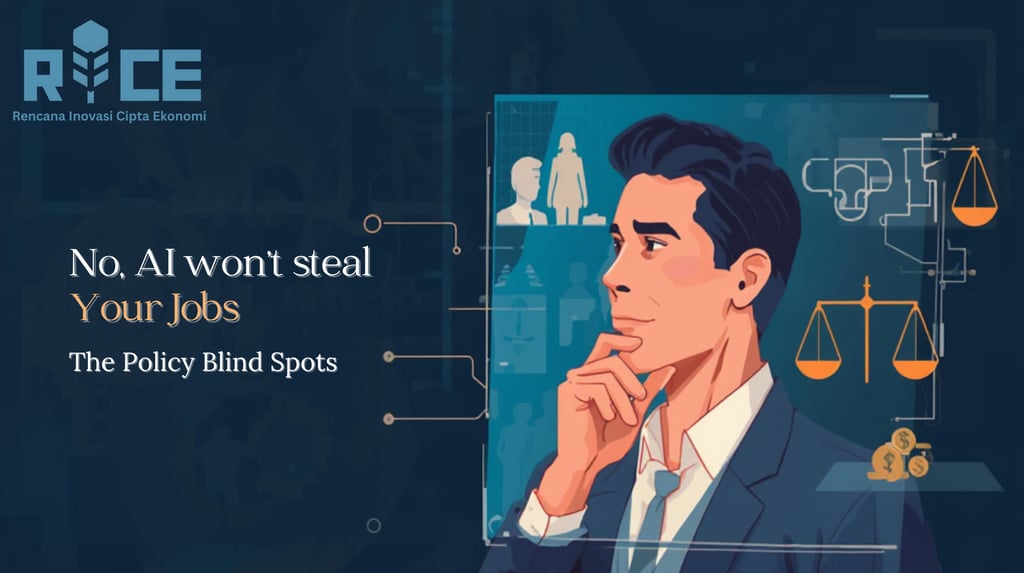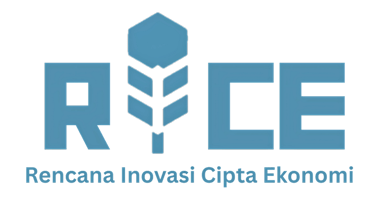No, AI Won't Steal All Your Jobs: The Policy Blind Spots We're Ignoring
Learn how proactive governance shapes a human-centric AI future, augmenting rather than diminishing work.
AI INSIGHT
Rice AI (Ratna)
11/13/20256 min read


The pervasive fear that Artificial Intelligence (AI) will inevitably lead to widespread job displacement often overshadows a critical truth: the future of work isn't predetermined by technology alone. While AI certainly promises profound transformations, the narrative of mass job annihilation frequently overlooks the crucial role of proactive policy in shaping its impact. This prevailing anxiety, though understandable, is often rooted in a limited view of AI's capabilities and, more importantly, a significant blind spot regarding the societal structures and governance mechanisms required for an equitable transition.
At Rice AI, we recognize that AI's potential is best realized when guided by informed strategies that prioritize human prosperity and adaptability. The real challenge isn't merely adapting to AI, but rather establishing robust policy frameworks that enable our workforces and economies to thrive amidst technological evolution. This discussion explores the policy shortcomings that currently hinder our preparedness, arguing that with strategic foresight, we can navigate AI's integration to augment human potential, rather than diminish it.
Beyond the Hype: Reframing AI's Impact on Employment
The sensational headlines about robots taking over often paint an incomplete picture of AI's true influence on employment. Understanding the nuanced relationship between AI and jobs requires moving past simplistic narratives of replacement and embracing the reality of transformation.
Automation vs. Augmentation
Many discussions around AI job displacement conflate automation with augmentation. AI excels at automating repetitive, predictable tasks that often lack cognitive complexity. This includes data entry, routine customer service inquiries, or pattern recognition in large datasets. Far from eliminating the entire job, AI typically automates specific tasks within a role, freeing human workers to focus on higher-value activities requiring creativity, critical thinking, emotional intelligence, and complex problem-solving. For instance, an AI might sift through legal documents, but a human lawyer still interprets nuances and argues cases.
Job Creation in New Sectors
History consistently demonstrates that technological revolutions, while disrupting existing industries, simultaneously spawn entirely new ones and create unforeseen job categories. The rise of AI is no different. We are already witnessing the emergence of roles such as AI trainers, data ethicists, AI system auditors, prompt engineers, and machine learning specialists. These new positions are vital for developing, deploying, maintaining, and overseeing AI systems ethically and effectively. The future will demand individuals skilled in human-AI collaboration, bridging the gap between advanced algorithms and real-world human needs.
Critical Policy Blind Spots in AI Integration
While technological advancements race forward, policy development often lags, creating significant gaps in our preparedness for an AI-powered future. Addressing these policy blind spots is paramount to ensuring an inclusive and prosperous transition.
Education and Workforce Development
One of the most glaring blind spots is the insufficient investment in adaptable education and robust workforce development programs. Our current educational systems, from primary school to professional training, are often ill-equipped to prepare individuals for a rapidly evolving job market shaped by AI. There's a critical need for lifelong learning frameworks that allow workers to continuously reskill and upskill. This involves shifting focus from rote memorization to fostering adaptability, digital literacy, and uniquely human cognitive skills. Governments, in collaboration with industry partners like Rice AI, must invest in accessible, flexible training initiatives that equip current and future workforces with the competencies needed to work alongside AI, not compete with it. Without this foundational investment, the promise of AI-driven productivity gains risks being undermined by a widening skills gap.
Social Safety Nets and Economic Transitions
The potential for transitional unemployment, even if not mass job loss, necessitates a rethinking of our existing social safety nets. Current unemployment benefits and welfare programs were designed for a different economic era and may prove inadequate for the rapid, widespread shifts AI could induce. Policymakers must explore innovative solutions such as adaptive unemployment benefits that support longer retraining periods, or even pilot programs for universal basic income (UBI) to provide a safety net during significant career transitions. Furthermore, the concept of "portable benefits" – benefits that follow the worker rather than being tied to a specific employer – becomes increasingly relevant as contract work and the gig economy grow, often facilitated by AI platforms. Ensuring workers have a secure foundation during these transitions is not just an ethical imperative but an economic stability measure.
Data Governance and Ethical AI Standards
The foundation of effective AI lies in data, and without robust data governance and clear ethical standards, AI systems can perpetuate or even amplify existing societal biases and inequalities. Policy blind spots in this area can lead to AI that is discriminatory, opaque, and untrustworthy, undermining public confidence and hindering widespread adoption. Governments must establish clear regulations for data privacy, algorithmic transparency, and accountability. This includes mandating audits for bias, requiring explainable AI systems, and creating mechanisms for redress when AI decisions cause harm. Ethical guidelines are not merely theoretical; they are practical necessities for building AI systems that are fair, equitable, and serve the common good. Organizations like Rice AI advocate for and implement stringent ethical AI frameworks, understanding that trust is the currency of technological progress.
The Role of Public-Private Partnerships
Navigating the complexities of AI integration requires a collaborative effort that extends beyond any single sector. Public-private partnerships are essential for bridging the gap between technological innovation, policy development, and societal well-being.
Government Initiatives and Industry Collaboration
Governments have a critical role in incentivizing responsible AI development and deployment, particularly regarding workforce investment. This can take the form of tax breaks for companies investing in employee reskilling, grants for AI research focused on human-AI collaboration, or funding for educational programs that cultivate AI literacy. However, government efforts alone are insufficient. Industry expertise is vital for understanding the practical applications and implications of AI. Collaborative initiatives, where private companies share insights and resources, can accelerate the development of relevant curricula and training programs. Organizations like Rice AI actively engage in such partnerships, providing cutting-edge expertise to inform policy and ensure that educational initiatives align with real-world industry demands. These collaborations foster an ecosystem where innovation is balanced with social responsibility.
Redefining Work and Value Creation
Policy also has a role in encouraging a redefinition of work itself. As AI takes over routine tasks, human value creation will increasingly shift towards uniquely human attributes. Policies can foster environments where innovation in job design is encouraged, allowing for new business models that leverage AI to amplify human capabilities. This might involve supporting entrepreneurship in AI-driven services, or creating regulatory sandboxes for companies experimenting with novel human-AI teaming models. The goal is to move beyond viewing jobs as fixed entities and instead focus on cultivating flexible, adaptable workforces that can pivot and create value in dynamic, AI-augmented roles.
Proactive Strategies for a Human-Centric AI Future
To truly harness AI's benefits, we must adopt proactive strategies that place human well-being and adaptability at the forefront of technological advancement. This involves prioritizing unique human skills and ensuring our regulatory frameworks are agile enough to keep pace.
Prioritizing Human Skills
In an AI-augmented world, skills that robots cannot easily replicate will become immensely valuable. These include creativity, critical thinking, complex problem-solving, emotional intelligence, empathy, communication, and ethical reasoning. Educational systems must pivot away from narrow, specialized training towards fostering these broad, transferable human capabilities. Policies can incentivize educational institutions and employers to prioritize the development of these skills, ensuring that individuals are equipped for a future where their distinct human advantages are their greatest assets. This means moving beyond STEM alone, recognizing the vital role of humanities and arts in cultivating innovative and adaptable thinkers.
Agile Policy Development
The rapid pace of AI development demands an equally agile approach to policy and regulation. Traditional legislative processes, often slow and cumbersome, risk becoming obsolete before new technologies even fully mature. Policymakers must explore more dynamic approaches, such as regulatory sandboxes where new technologies and their corresponding regulations can be tested in controlled environments before broad implementation. This allows for experimentation, learning, and iterative policy adjustments. Furthermore, international cooperation on AI policy is crucial. Since AI technology transcends national borders, a fragmented regulatory landscape can stifle innovation and create ethical loopholes. Coordinated global efforts can establish shared principles for ethical AI development, data governance, and workforce transition.
Conclusion
The notion that AI will simply "steal" all jobs is a limited perspective that distracts from the pressing policy challenges and opportunities before us. AI is not a tsunami destined to overwhelm our workforce; it is a powerful tool whose impact will be largely shaped by the foresight and wisdom of our collective policy decisions. Ignoring the policy blind spots in education, social safety nets, data governance, and public-private collaboration is the true risk.
By proactively addressing these areas, we can ensure that AI serves as a catalyst for economic growth, human flourishing, and the creation of entirely new forms of value. This requires a concerted effort from governments to invest in adaptable education and robust social safety nets, from industries to collaborate on reskilling and ethical deployment, and from individuals to embrace lifelong learning.
At Rice AI, we are committed to helping organizations and policymakers understand these complex dynamics and implement human-centric AI strategies. Our expertise lies in navigating the ethical and practical challenges of AI integration, ensuring that technology empowers rather than diminishes human potential. We believe that by bridging the gap between technological innovation and thoughtful governance, we can forge a future where AI enriches our lives and transforms work for the better.
Let's move beyond fear and into action. Engage with policymakers, advocate for investments in future-ready skills, and explore how your organization can ethically integrate AI to augment human capabilities. The future of work is not written yet; it's being designed right now, by all of us.
#AIPolicy #FutureOfWork #AIandJobs #WorkforceDevelopment #EthicalAI #DigitalTransformation #PublicPrivatePartnership #SkillsGap #AIStrategy #JobMarket #EconomicPolicy #AIImpact #TechForGood #HumanCentricAI #Innovation
RICE AI Consultant
To be the most trusted partner in digital transformation and AI innovation, helping organizations grow sustainably and create a better future.
Connect with us
Email: consultant@riceai.net
+62 822-2154-2090 (Marketing)
© 2025. All rights reserved.


+62 851-1748-1134 (Office)
IG: @riceai.consultant
